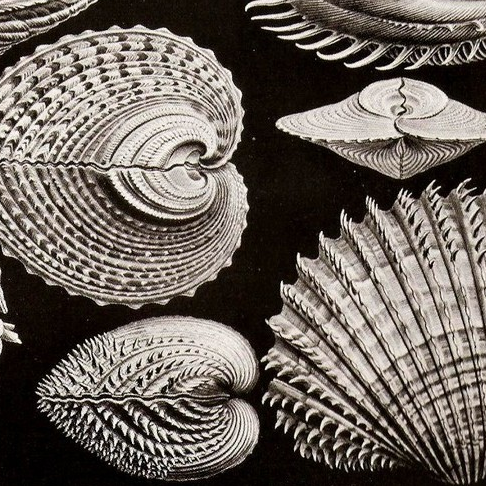By Hans Schouwenburg
In response to the global People’s Climate March on September 21, 2014, Shells and Pebbles editor Hans Schouwenburg walks you through the history of the debate about man-made climate change. He concludes that historians of science should take their responsibility and assist their colleagues in the natural sciences in work and deed.
The public debate about climate change is haunted by the persistent myth that global warming is a recent scientific hypothesis liable to uncertainty and disagreement. Time and again, op-eds in newspapers insinuate that the scientific world is divided in two competing groups. Some scientists defend anthropogenic – i.e. man-made – climate change, you often hear, while many others are in favour of natural causes. The scientific community itself, however, is remarkably united on the issue. Of all scientific articles about climate change published in peer-reviewed journals between 1991 and 2011, 97.1% endorsed the idea that humans are causing global warming. The most recent IPCC report concluded therefore that ‘it is extremely likely [in terms of statistical probability] that human influence has been the dominant cause of the observed warming since the mid-20th century’.
Thanks to historians of science Naomi Oreskes and Erik Conway, among others, we now know that the misleading media reports and corresponding ignorance among the public is the result of a highly successful PR campaign of a small group of conservative think tanks in the United States with strong ties to the fossil fuel industry. This campaign, and the resulting rise of doubt about global warming, started in the early 1990s when the UN prepared the Framework Convention on Climate Change for the Rio Earth Summit in 1992. By then, climate scientists were already working on the issue for more than three decades. It is interesting, therefore, to look at the scientific view on anthropogenic climate change before ‘merchants of doubt’ made havoc of the scientific consensus.
Towards a Consensus
In 1965, scientists at the US Science Advisory Committee informed President Lyndon B. Johnson about a disturbing discovery. During the past decade, the global use of fossil fuels had increased exponentially. If this trend continued, according to the scientists, it could end in uncontrollable changes in the earth’s climate. Johnson took these warnings at face value. He assembled the Congress and bluntly announced that ‘this generation has altered the composition of the atmosphere on a global scale through … a steady increase in carbon dioxide from the burning of fossil fuels’.
In the decade after Johnson’s message to the Congress, climate scientists around the world tried to calculate the exact future consequences of carbon dioxide emissions. Although global temperatures were cooling at that moment due to natural climate fluctuations, they predicted ‘a several-decades-long period of rapid warming’. In the late 1980s, after the “global warming” hypothesis was thoroughly tested, a consensus emerged about at least four points. Firstly, CO2 emissions resulting from human activities are changing the climate on a global scale. Secondly, the most far reaching effects of these human caused pollutants are global warming and sea level rise. Thirdly, global warming and sea level rise are already measurably happening. And finally, because predictions indicate that these trends will continue in the future, it is of vital importance to set into motion internationally coordinated efforts to reduce emissions.
To gain momentum for such actions, the Conference on the Changing Atmosphere in Toronto (1988) famously proclaimed that ‘humanity is conducting an unintended, uncontrolled, globally pervasive Experiment whose ultimate consequences could be second only to a global nuclear war’. The Toronto Conference steered two types of response. The United Nations decided to draft a Framework Convention on Climate Change. Conservative think tanks in the United States, on the other hand, launched an all-out attack on science.
Merchants of Doubt
The prospect of far reaching actions to combat climate change, which would certainly include though regulations of the free-market economy as well as serious restraints of the fossil fuel industry, gave rise to a coordinated campaign of denial. Conservative think tanks in the United States, like the Marshall Institute that was established to defend Ronald Reagan’s Cold War politics, started to publish reports which argued that global warming was a natural phenomenon caused by the sun. Time and again, these reports, which were not written by climate scientists, concluded that action was not necessary because the science was far from settled. The ultimate aim of the counter movement was to organise delay and create confusion. In reaching this goal, the merchants of doubt even sued climate scientists like Michael Mann for ‘fraud’.
These campaigns were so successful that, more than forty years after Johnson’s message to the Congress, the Chairman of President George W. Bush’s Senate Committee on Environment and Public Works could call man-made climate change ‘the greatest hoax ever perpetrated on the American people’. In passing, the Chairman also compared Al Gore’s documentary about climate change – An Inconvenient Truth – to Mein Kampf. In 2010, in response to these assaults, the US National Academy of Sciences published an open letter in defence of climate research. The letter, which was signed by 255 prominent scientists, concluded:
We also call for an end to McCarthy-like threats of criminal prosecution against our colleagues based on innuendo and guilt by association, the harassment of scientists by politicians seeking distractions to avoid taking action, and the outright lies being spread about them. Society has two choices: we can ignore the science and hide our heads in the sand and hope we are lucky, or we can act in the public interest to reduce the threat of global climate change quickly and substantively.
From History to Action
I think that we, PhD candidates in the history of science, should help our colleagues in the labs. For too long we have passively described science in action, without answering the climate scientist’s call for practical action. Even worse, as Latour observed, our critical apparatus of cultural deconstruction is now being used by the ‘worst possible fellows’ to deny global warming. We are scholars who try to describe the political, ideological and social aspects of science, but we are also humans who care about the future of our planet and humanity. Because of climate change, and because of ‘bad guys’ who refer to us to trivialize the problem, our very future is at stake! We can no longer observe these developments from a distance. It is about time to draw a firm line and come into action. This is what we need to do:
● Awareness starts with education. We should implement the debate about anthropogenic climate change in our teaching. This debate not only provides an interesting case to study the links between science and public (or between expertise, ideology and money), but can also be used as a subtle means to introduce students to the facts about global warming (and the nonsense that haunts the public debate for that matter).
● Setting the example. We should follow our confrères at Harvard and force the boards of our universities to cut all ties with the fossil fuel industry. We should also demand that our universities take the lead in the transition to a sustainable society by becoming energy neutral.
● Scientifically-informed activism. There is uncertainty in science and we ought to show that. But there is also consensus and risk. The climate is changing and the risks of doing nothing are simply too high. We should, therefore, become scientivists and use our knowledge and position to direct societal change. We should write op-eds and letters to politicians, attend demonstrations and organise sit-ins.
● Change starts with yourself. We should change our personal behaviour. We can make a difference by living a low-carbon life. We can take the train to conferences instead of the plane. We can skip meetings on other continents, or use our bike or public transport instead of a car if we go to our office. We can also buy fair-trade and ecological products instead of cheap meat. The future is in our hands!
o-o-o
Hans Schouwenburg is a PhD candidate at Maastricht University, and editor of Shells&Pebbles.
(Featured image: John Oliver holds a representative climate change debate in ‘Last Week Tonight’, with 97 scientists defending and 3 attacking the notion of man-made climate change.)



